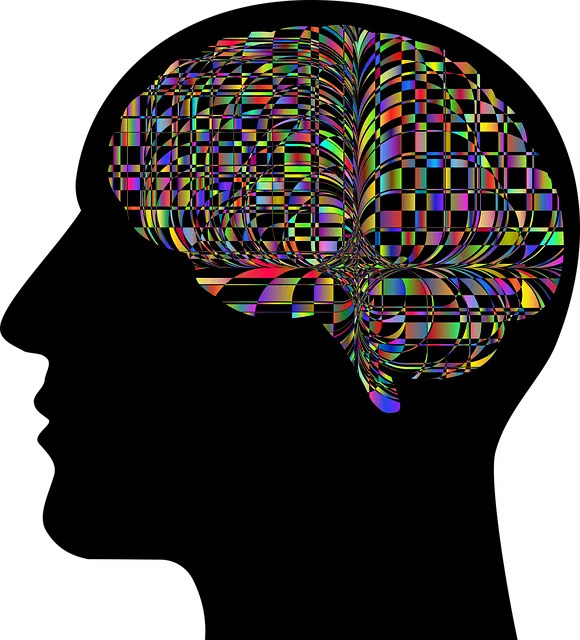Anxiety, a common global concern, is effectively addressed by Englewood Kaiser Permanente Psychiatry through heightened awareness of symptoms and triggers, Cognitive Behavioral Therapy (CBT), mindfulness practices, holistic lifestyle changes, and education. Their tailored strategies, including stress management workshops and mental wellness coaching, empower individuals to manage anxiety, improve overall mental health, and foster personal growth.
“Discover effective anxiety management techniques at Englewood Kaiser Permanente Psychiatry. This comprehensive guide explores various strategies, from understanding anxiety’s symptoms and triggers to powerful therapies like Cognitive Behavioral Therapy (CBT). Learn mindfulness and meditation practices to calm your mind, plus lifestyle changes and support systems for enhanced resilience. Empower yourself with these evidence-based methods, tailored by experts at Englewood Kaiser Permanente Psychiatry.”
- Understanding Anxiety: Recognizing Symptoms and Triggers at Englewood Kaiser Permanente Psychiatry
- Cognitive Behavioral Therapy (CBT): A Powerful Tool for Managing Anxiety Disorders
- Mindfulness and Meditation Techniques to Calm the Anxious Mind
- Lifestyle Changes and Support Systems: Nurturing Resilience Against Anxiety
Understanding Anxiety: Recognizing Symptoms and Triggers at Englewood Kaiser Permanente Psychiatry

Anxiety is a common yet complex mental health concern that affects millions worldwide. Recognizing its symptoms and understanding personal triggers is an essential first step in managing anxiety effectively, as highlighted by professionals at Englewood Kaiser Permanente Psychiatry. This approach forms the cornerstone of many successful treatment plans.
The team at Englewood Kaiser Permanente psychiatry emphasizes that heightened awareness can empower individuals to take control of their mental well-being. Anxiety manifestations can vary from physical sensations like increased heart rate and breathing issues to cognitive distortions such as excessive worry or fear. By identifying these symptoms, individuals can begin to navigate and mitigate the impact of anxiety in their daily lives. Moreover, understanding personal triggers—be it stressful situations, certain environments, or specific thoughts—enables people to develop tailored strategies for stress management workshops organization, fostering a more positive mindset and enhancing overall mental health awareness.
Cognitive Behavioral Therapy (CBT): A Powerful Tool for Managing Anxiety Disorders

Cognitive Behavioral Therapy (CBT) is a powerful and effective tool for managing anxiety disorders, backed by extensive research and recommended by many Englewood Kaiser Permanente psychiatry professionals. This evidence-based approach focuses on identifying and changing negative thought patterns and behaviors that contribute to anxiety, offering patients practical strategies to cope with their symptoms. By challenging distorted thinking and learning healthier ways of responding to stressful situations, CBT enables individuals to gain a greater sense of control over their lives and reduce the intensity of anxious feelings.
Englewood Kaiser Permanente’s commitment to mental wellness includes providing resources such as Burnout Prevention Strategies for Healthcare Providers and Crisis Intervention Guidance, recognizing the significant role that mental health plays in overall well-being. CBT is particularly beneficial for healthcare providers who may experience high levels of stress and anxiety due to their demanding professions. Through CBT, professionals can enhance their resilience, improve patient care, and maintain a healthy work-life balance.
Mindfulness and Meditation Techniques to Calm the Anxious Mind

Anxiety management often begins with cultivating a present-moment awareness, and mindfulness practices are at the forefront of this approach. Englewood Kaiser Permanente psychiatry professionals recommend starting with simple breathing exercises to anchor oneself in the here and now. By focusing on the sensation of breath entering and leaving the body, individuals can disrupt anxious thoughts and create a sense of calm. This grounding technique is accessible anywhere, making it an excellent tool for managing anxiety throughout the day.
Meditation further enhances these mindfulness skills. Guided meditation apps or classes led by healthcare provider cultural competency training specialists can teach individuals to observe their thoughts without judgment. This process, known as cognitive detachment, allows for a greater awareness of emotional triggers and promotes more effective emotional healing processes. Regular practice has been shown to reduce anxiety symptoms and improve overall mental wellness coaching programs development, making it an invaluable tool in the pursuit of long-term calm and resilience.
Lifestyle Changes and Support Systems: Nurturing Resilience Against Anxiety

Englewood Kaiser Permanente psychiatry services emphasize the importance of lifestyle changes and support systems in anxiety management. Adopting healthy self-care practices, such as regular exercise, balanced nutrition, and adequate sleep, can significantly reduce anxiety levels. Mental Health Education Programs Design offered by Englewood Kaiser Permanente equip individuals with knowledge about anxiety disorders, fostering better understanding and self-management strategies.
Building a robust support network is another crucial aspect. Connecting with family, friends, or support groups provides emotional resilience against anxiety. Risk Management Planning for Mental Health Professionals, as promoted by Englewood Kaiser Permanente, highlights the importance of self-care for mental health workers to prevent burnout and maintain optimal patient care. These comprehensive approaches work together to create a nurturing environment that supports both personal growth and effective anxiety management.
Anxiety management is a multifaceted journey, as demonstrated by the diverse techniques offered by Englewood Kaiser Permanente Psychiatry. From understanding symptoms and triggers to employing evidence-based therapies like Cognitive Behavioral Therapy (CBT), mindfulness practices, and lifestyle modifications, each approach plays a crucial role in fostering resilience. By integrating these strategies into daily life, individuals can navigate anxiety’s challenges more effectively, achieving improved mental well-being.






